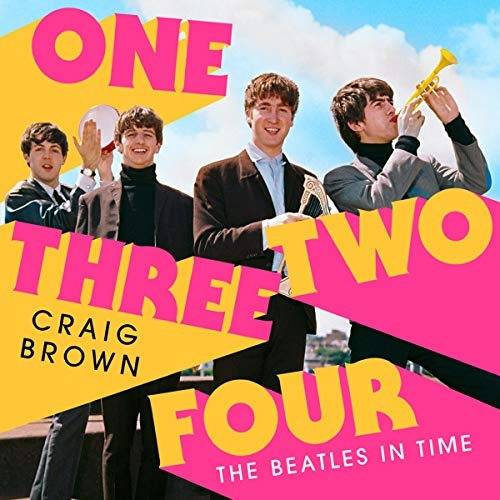
This article is a preview from the Autumn 2017 edition of New Humanist.
On 22 January, the BBC News website reported on Donald Trump’s tantrum over photographic evidence of the relatively sparse attendance of his inauguration. He had accused the media of “dishonesty”, the item said. “Mr Trump was speaking after photographs were published appearing to show more people attended the inauguration of his predecessor Barack Obama in 2009.”
The bland wash of BBC News-speak can lull the reader but that “appearing” stuck in the craw. It felt like a concession, in the name of fairness and neutrality, to the White House’s brazen effort to manufacture “alternative” facts. “Appearing” raises a level of doubt about the veracity of these images. It’s the sort of language one might use about Victorian photographs “appearing” to show fairies dancing at the bottom of the garden, or UFOs “appearing” to hover above New Mexico. It concedes the possibility, raised by Trump without substantiation, that these photographs released by reputable agencies were doctored by operatives of the liberal elite, photoshopping out hordes of the Trump faithful. It is further evidence that, perhaps precisely because of its attempts to preserve a lack of bias, the BBC’s authority has been shaken.
In an age in which we are warned of the dangers of “normalisation” of would-be fascists and far right demagogues, the BBC is normaliser-in-chief, a “Keep Calm And Carry On” poster for a supposed stability and continuity, long to reign over us. This is embodied in the upholstered tones of newsreader Fiona Bruce, her raised eyebrow an assurance that while the gravity of the daily news should give us temporary pause for reflection, a “tut-tut”, it is all ultimately water under the bridge, and that the next edition of Antiques Roadshow, hosted by herself as part of a further comforting continuum, is never far away.
In the past, I have certainly drawn comfort from the supposed authoritative restraint of BBC news – the oak-panelled, on-the-hour sobriety of Radio 4 bulletins, a certain faith in the lack of hindrance BBC cameras enjoy worldwide. Even today, that remains partly the case. I am more British than I like to think, more vulnerable to what John Lydon once termed the “layered mass of subtle props” of which the Beeb is a part. It’s part of my make-up, what I’ve inhaled for decades. I’m even inclined to believe that the vast majority of BBC staff are left-liberal types, who share the droll scepticism of The News Quiz: the Tories are awful, the opposition inept and just as venal.
Yet it does seem that what the BBC considers “neutrality” is in fact an automatic deference to power. Not necessarily the Tories – it was the same under Tony Blair and Gordon Brown’s Labour. Church, monarchy, foreign Presidents, all are considered to hold an authority that is beyond debate. This is ingrained in the very traditions of the BBC. It even spreads to other areas such as sports coverage – the tendency of Match Of The Day, for example, to pick out the owners of Premier League clubs, however dubious their provenance, and comment along the lines of “Mr Abramovich will be very happy about that,” whenever their plaything team scores.
This tendency is even extended to Trump, this mendacious incompetent, perpetually overripe for scorn, derision, possibly impeachment, a man who breaks wind in the face of political politesse. The BBC cannot find it in themselves not to be the BBC, to admit that which is beyond the pale, any more than a head waiter could refuse to serve a rich American tourist who turned up to High Tea in Bermuda shorts.
All of which leads them to give Trump the benefit of the doubt. When he makes a speech to Congress in which he manages to behave himself for 20 minutes and utter acceptable scripted platitudes reflecting the dignity of his office, the BBC’s North American correspondent leads with the headline “A kindler, gentler President”, as if this speech were proof of a genuine overnight change of character rather than a restraint as temporary as the wearing of a tight cummerbund. When a state visit to the UK is proposed, one which might see demonstrators turn out in masses, BBC News 24 correspondents chat with gently bleating inanity about how he would probably like to play golf at Balmoral. “He’d probably like that.” And, when his attempt to repeal Obamacare is thwarted and he resorts, with risible petulance, to blaming the failure on Democrats for declining to participate in the dismantling of their own healthcare policy, he is described as “defiant”.
* * *
The BBC would no doubt argue that they come under fire from both sides – on 21 March, for example, a group of mostly Conservative parliamentarians sent a letter to BBC chiefs saying that the broadcaster had characterised Britain as xenophobic and focused too much on regretful Leave voters. This might lead one to conclude that the BBC “must be doing something right” and that criticism from across the spectrum is proof of their successful impartiality. It’s nothing of the sort, of course. Suppose one side is correct and the other wrong? Another report hinted at a more subtle failing on the part of BBC News. Although statistics have shown they gave equal billing to both sides of the argument in the EU Referendum, Zurich-based analysts Media Tenor argued that British TV, the BBC in particular, had failed to present a balanced view of the EU or enough coverage of how it affects the UK. Their analysis showed that on average over the past 15 years a third of BBC coverage of the EU has been negative, while only about 7 per cent was positive.
Again, I strongly suspect that BBC chiefs and employees would have voted overwhelmingly to remain. But metropolitan guilt in the face of a nation of tabloid-fomented middle Englanders was quite possibly a stronger factor in their considerations; a case of over-internalising the “concerns” of tabloid readers, perhaps. More pertinently, it may well be that the case for staying in the EU has always been too much of a mouthful for the essentially middlebrow BBC News, with its “we’ll have to leave it there” pellet dispensation of current affairs. You’d have searched BBC News in vain for an explanation of the protracted bureaucratic process of extrication from the EU were Britain to vote to leave, for instance. The “bias” here is against complexity – the sort of complexity that might involve an online paragraph containing more than one sentence, for instance, or a news item that actually takes literally and proactively John Birt’s much-vaunted “mission to explain”, rather than merely paraphrasing the feeble campaign arguments put by both sides in the Referendum debate.
The upshot is that in these times the steady, limited tenor of the BBC is no longer adequate. Which is why Channel 4 and even ITV News are perhaps better bets for “impartiality”. But then again, “balance” itself has become a contestable concept. Given the winds of change, the evolving of assumptions, the subtle shifting of political goalposts, pressures frankly applied by the rich, powerful and corporate forces of the right, rather than the mythical liberal elite, “balance” as determined by the besieged BBC is simply not to be relied upon. Reporters walking and talking to camera in the accepted BBC cadences do not balance make. This intellectually incapable and compromised institution simply isn’t up to processing Trump and Brexit. Better, frankly, to have confidence in what is right and wrong and draw from determined, angry, reliable, delving, partial sources. For Trump, read the angry, revitalised Washington Post and New York Times, rearing in response to the President’s sustained contempt for media freedoms, rather than the muted, Jeevesian dispatches of the BBC.
If the BBC has been at all ruffled, it has been by the arrival of Jeremy Corbyn and the sometimes over-abrasive response of BBC reporter Laura Kuenssberg, whom many Corbynites suspect of being unable to conceal her contempt for this outsider borne to power out of a desire to gatecrash the temperate consensus of centrist politics. She was booed by Corbyn supporters back in June 2016 during the referendum campaign and can have done little to assuage them when she wrote up an analysis of the Labour manifesto which she summarised as “more spending, more tax, and more borrowing”, a highly skewed take which resembled little more than a sneering backbench retort. She has also been censured for breaching the BBC’s impartiality rules by the BBC Trust itself for another report on Corbyn. (During the election campaign and its aftermath, Kuenssberg received a great deal of abuse from both Labour and Conservative supporters – and at one point during the campaign was assigned a bodyguard, according to a recent report in the Spectator.)
* * *
Yet Kuenssberg’s style is perhaps what we need in these less then pacific political times. She may have upset Corbyn supporters, but she did also manage to upset Donald Trump in a press conference. Similarly, the Daily Politics and This Week presenter Andrew Neil, whose traditional right-wing sympathies are common knowledge, should nonetheless be considered an asset by both sides, as he brings a certain sharpness and bristle to his interviewing style. These are at least not bland characters. Conversely, Newsnight’s Emily Maitlis was accused of bias by right-wing viewers for her interview with Theresa May after the Grenfell tower fire in mid-June, according to the Daily Express. Maitlis, who lives in West London near the site of the fire, could barely conceal her contempt for the malfunctioning automated message dispenser that was May. No matter. It revealed truths: about the depth of anger excited by Grenfell, and the tin-eared response of May’s government. In times like these, the BBC might do better to rethink its approach to impartiality and balance, and the fiction that it functions as a reliable diviner of political reality. These are not tepid times and the tepidity of its presentation is a misrepresentation of our times.

